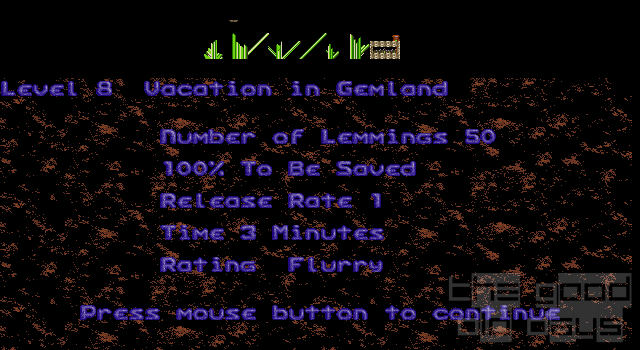Imagic, famous for the ultra-successful Atlantis, but now struggling hard after the North American video game crash, tried making the jump to home computers… and couldn't have departed more radically from their arcadey origins than with Crime and Punishment. A text-based courtroom simulation, claiming serious research and realistic themes and unique to this day insofar that it puts its player in the shoes of a judge. In each case, the verdict “guilty” has already been determined. What's left is determining the sentence. Probation, prison (if so, how long), death?
The game allows reviewing certain aspects of the case, such as the wrongdoers criminal record, his or her relationship with the victim of the crime etc. Not all items may be relevant to the case. In a case of forgery, for instance, looking up the tools used to commit the crime may not play a big role. After proposing a sentence, the game will compare to what it claims to be a real judge's verdict and award points based on how close the player came, and on how many queries they made. Looking up fewer things increases the score.

This being set in the USA, the game expects the player to act within the boundaries of common law. Most countries in the world these days apply a civil law system. Common law lacks an abstractly defined system to fall back on. Instead, similar precedence cases are referred to in common law. In simple terms: if another judge ruled in this way before, it is valid to do it again the same way this time.
The game comparing verdicts therefore makes sense. While the game does record the information looked up per case and conveniently offers to display it again when needed, it does not let its player review a case database to look for precedence. Whether that would make it more entertaining or not, it does leave the player shooting in the dark for the longest time. The amount of playable case is impressively large; it will take quite some time before two similar ones appear. Which is a strength, but also a curse, because until this happens, it's essentially guessing.

Can this guessing phase ever be overcome? The facts available per case quite limited, the guessing does not even feel like the educated kind. Taking its seriously, as strongly suggested by the introductory remarks optionally displayed at game launch, the prevalent feeling is being forced to pass sentence on people never seen, heard only in a single sentence, not having experienced their behaviour when confronted with witnesses or allegations etc. Highly uncomfortable.
Maybe even more importantly, though this implies that the cases presented never come to life. Studying them is simply not interesting enough. Which ends up with a catch 22 situation: initial player judgement is quite random, but only extended playing could mitigate this. This, however, is unlikely to happen, because who will want to read shallow case descriptions of little human interest, lacking intrigue and drama, for weeks just to then hit an arbitrarily defined mark?
Even if this game had been a hit, Imagic likely could not have been saved anyway. They went out of business soon after.


Comments (3) [Post comment]
Yup... same here. Felt way too much like just guessing a random sentence.
Gepostet auf Mastodon
it was interesting to play once, but I quickly lost interest.
Posted on Mastodon